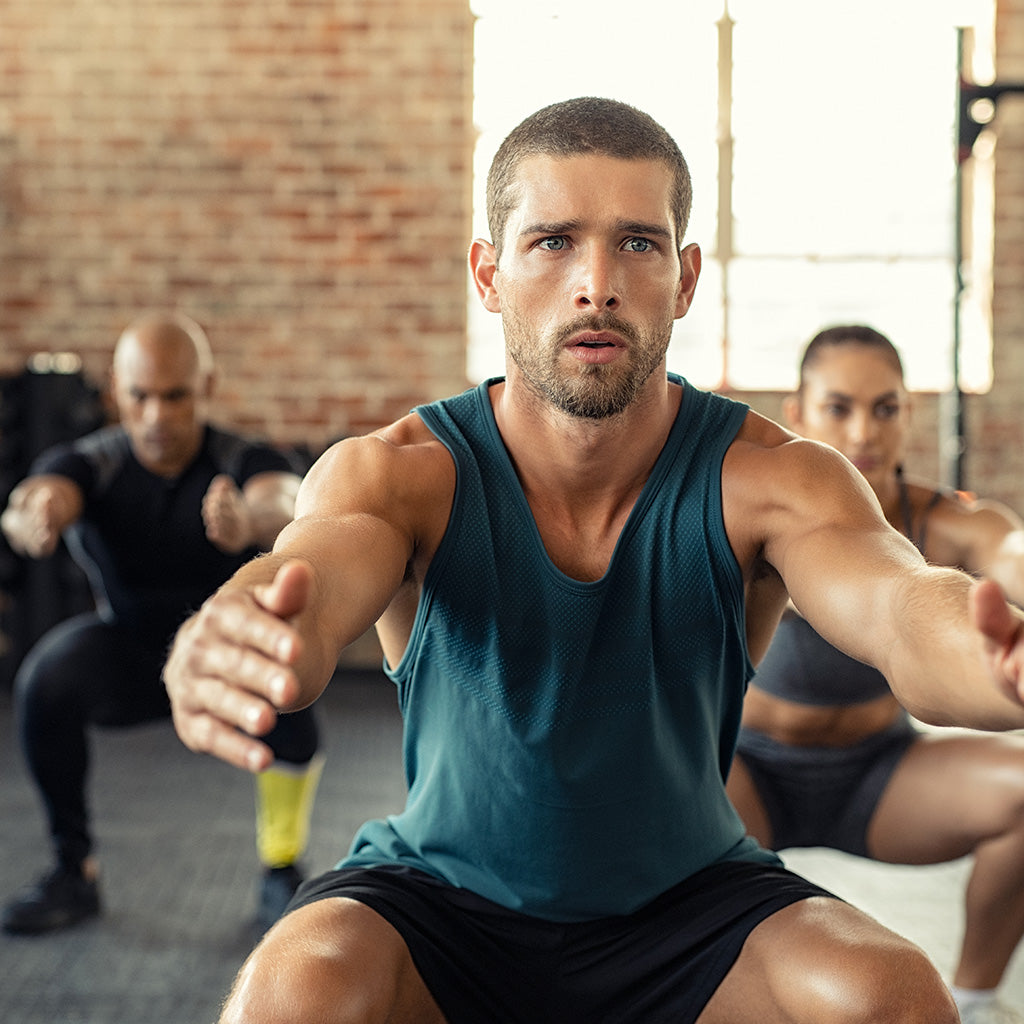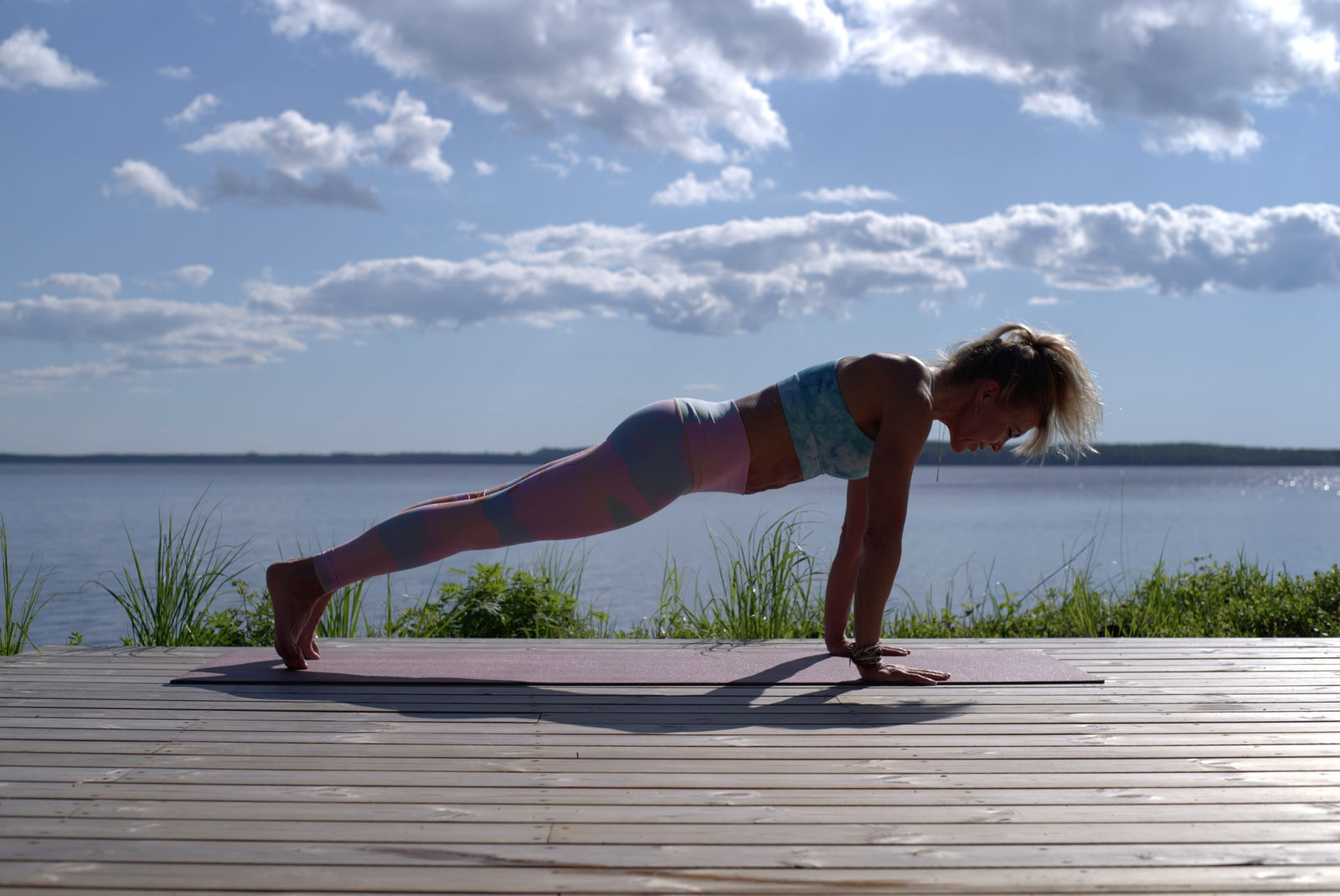Photo by bruce mars on Unsplash
High-energy sports and workouts put your body through a rigorous trial that drains electrolytes, natural salts, and fluids.
You may not want the extra calories of Gatorade or Powerade, or you may just want some cool water instead, but you still need to restore those vital elements and fluids. Getting plenty of electrolytes helps the body restore the fluid balance and stay hydrated.
VALI health produces two supplements [5] that supply the bodies of athletes, farmers, or construction workers with the natural substances they need when they lose salts through hard work and play.
Your muscles may cramp, tighten up or give out without the proper nutrition that VALI Electrolyte Salts [1] and Electrolyte Salts with Caffeine [2] can supply.
Compete or work at your optimal intensity and comfort with VALI Electrolyte Salts. The capsules supply:
- 500 IU Vitamin D3 to help the body absorb calcium
- 20 mg calcium
- 15 mg magnesium
- 280 mg chloride
- 120 mg sodium
- 100 mg potassium
- 1 mg zinc
The capsules with caffeine also have 40 mg of the stimulant to boost your game if your energy is running out.
Don't worry about overdosing on VALI, if you take the capsules in moderation. Medicalnewstoday.com has a chart [4] showing recommended daily allowances of some of these electrolytes that VALI puts in the capsules:

Why these elements are so important
A National Academy of Sports Medicine article [3] gives the lowdown on these vital elements and tells why they are so important to athletes and the population in general.
The article says electrolytes help hydrate the body. Dehydration of even 3 percent of the body's natural fluids can seriously impair performance. The NASM says:
Electrolytes and food, mainly carbohydrates, facilitate the absorption of water. They allow fluids to cross the intestinal lining into the bloodstream to be carried to the tissues.
Even more important, though, is electrolytes’ role in the regulation of our heart. Electrolytes are involved in the firing of electrical charges that cause muscle contractions, including those of the heart. It’s no secret that if electrolyte levels drop too low during exercise, muscle cramps and weakness can result.
Athletes and those who do hard physical labor lose electrolytes through urine and sweat. If you sweat more, you lose more electrolytes. Also, some people lose more electrolytes than others.
What electrolytes do for the body
Sodium and chloride
If you feel crystals on your skin after an intense workout, that's sodium or salt. Those who are not trained rigorously or who change it up and run in intense heat and humidity typically lose more sodium.
Salt helps nerves communicate and regulates fluid in and around cells. Sodium is vitally important for preventing muscle cramps--more important than potassium.
Also, sodium and chloride are needed in sufficient levels to avoid the risk of heat illness and hyponatremia or low sodium in the blood.
Dr. Berg explains what electrolytes are and how they help hydrate the body.
Potassium
You run the risk of injuring your heart if you do not get enough potassium. A loss of too much potassium can decrease cell function, which can be dangerous.
Getting enough potassium can also help lessen fatigue. If you find yourself getting too fatigued from exercise, you might need more potassium. If you perspire a lot or work out in hot, humid weather, you might need extra potassium.
Magnesium
Magnesium is in play in several bodily processes involved with exercise, including synthesis of protein, fats, and carbohydrates; electrolyte balance; and neuromuscular coordination.
You may confuse muscle cramps with spasms. A cramp makes the muscle contract suddenly and painfully. Muscle spasms are repeated muscle contractions that do not cause pain. Both cramps and spasms are involuntary. You may need magnesium to prevent the contractions in hot and humid weather.
Calcium
In addition to contributing to bone health, adequate levels of calcium also help the body in enzyme reactions and transmission of nerve signals. In muscles, calcium and proteins react to let the muscles contract. Calcium helps the muscles do all the other vital jobs they do, too.
If it is hot or humid when you do your work or sport, you might need extra calcium for hydration and electrolyte balance.
Himalayan pink salt
One thing we haven't mentioned so far is that VALI Electrolyte Salts contain Himalayan pink salts, which contain 84 trace minerals and elements, not just the standard electrolytes. The salt gets its pink color from the minerals in the salt, including iron and molybdenum
While the elements are in trace amounts, it certainly can't hurt and may help to have them in your diet.
Conclusion
VALI has directions on the side about how many capsules of Electrolyte Salts you should take: 1 capsule with at least 8 ounces of water every 30-60 minutes as needed. Do not exceed 10 capsules in a 24-hour period
If you sweat when you exercise or work, you will need to replenish your body with electrolytes. The more you sweat, the more you will need to drink and take VALI supplements.
Sources:
[1] https://www.valiup.com/products/vali-electrolyte-salts-hydration-support
[2] https://www.valiup.com/products/vali-electrolyte-salts-caffeine-hydration-energy-support
[3] https://blog.nasm.org/fitness/electrolytes-performance-perks-and-real-food-sources
[4] https://www.medicalnewstoday.com/articles/153188#sources








